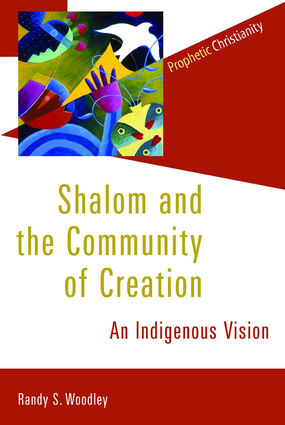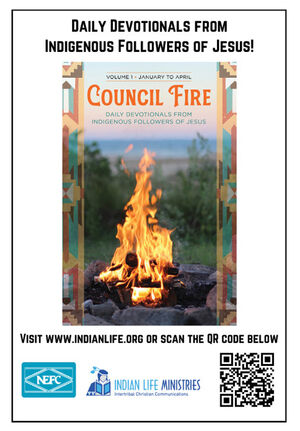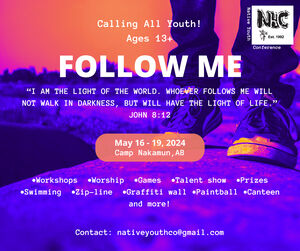Reconnecting God's Children to His Creation
Shalom and the Community of Creation: An Indigenous Vision
Last updated 7/23/2014 at 9:39pm
by Randy S. Woodley
Wm. B. Eerdmans Publishing Company
2012 Trade Soft Cover 178 pages
Randy Woodley in his theological book Shalom and the Community of Creation sets out to help everyone reconnect to creation in the way God intended for us. The Garden of Eden, and the goodness of creation, are crucial ideas if we are to understand how we can live a life of shalom (xvii). If we are not at rest with creation, we are somewhat out of touch with God's goodness through his creation (xix). Restoring shalom on earth is the purpose of the book.
Shalom is explained, which means more than "peace" in English. In Hebrew, it would be close to the idea of total human flourishing in every part of our lives as God created us for (10). I picture heaven on earth and God's presence when Woodley described it (11). Woodley argues that God's big dream is for the world to live in accordance with shalom; it is to live in God and harmoniously with His creation. Jesus demonstrated this shalom on earth when He speaks about the kingdom of heaven (32). Christ's kingdom is a community of harmony and wholeness (35).
I was amazed by some of the passages Woodley focused on in this book. We normally do not study bible passages like Amos 9:7 where God essentially asks Israel why they think they are better than the Ethiopians, Philistines and Arameans. There is an implication that a type of relationship existed between these nations and God and that this Godly relationship helped those people groups escape hostile situations and lands (46). Covenants were made with people other than the Israelites. This verse in Amos is huge for Woodley's argument to establish God's power and relationships with humanity, even those historically considered godless.
Once this is addressed, Woodley questions whether European theology has limited God too much. The importance of the critique of European theology seems to show how man is not perfect and how all peoples, including Europeans, are not superior to Indigenous people (61-62). Woodley is calling people back to the assumed covenants and sacred experiences that took place with Indigenous people and God (and also to traditions and ways that have helped Indigenous people prosper). Jeremiah 6:16 is used to support this (75). I believe this assumption (whether Indigenous people had covenants with God before Europeans arrived) plays a large role in whether a reader accepts or disregards Woodley's book.
Around the middle of the book, Woodley begins his full critique of what is wrong with European philosophy and how it is now a part of mainstream Christian thought. A few chapters require the reader to have a firm understanding of philosophy to be able think clearly on the issues being presented. The critique of European philosophy leads Woodley to explain why historical injustices happened to Indigenous people and how Christianity was horribly practiced. This critique is about how we humans truly 'know' the world. He is basically saying that Western philosophical ideas are out of touch with shalom, are sin stained, and allows people to conduct their affairs without God. He implies that this type of thinking has to go or humans will perish.
Woodley argued that European philosophy has hindered a biblical connection to land. It is not that 'white people' cannot have a connection to land (they can and do). The argument is how European philosophy, since the 16th century, has hurt God's creation (regardless of whoever is practicing that European philosophy). The problems are: the lack of connection to land, how people worship with each other, and where they worship. The broken relationship reflects more secular and non-shalom-like qualities rather than what God intends for us. Woodley ends one chapter with a strong critique of how the United States is oppressing others and claiming to be protected by God; he also criticizes how unbiblical the American Dream is concerning God's intentions of shalom on earth.
Woodley argues that Western Christianity needs to change rather than try to change the rituals and traditions of traditional Indigenous people. He argues that traditional Indigenous people are closer to shalom principles than mainstream Evangelical Christians are. The ideas on materialism, rampant individualism, hoarding wealth, receiving rather than giving, are all problems that Western Christians struggle with. Woodley argues that Indigenous people, who practice traditional principles are closer to creation, give more, are more communal, and are more accepting and inclusive (all are more biblical) (151-156). I will leave it to the reader to decide whether that is true or not. I'm sure this part of the book will displease some readers.
It is highly likely that the more problematic issues (for a general Christian audience) found in the book will be connected to Genesis 3 and sin. Woodley raises controversial issues like: a) how the fall in Genesis 3 does not make sense for traditional Indigenous people; and b) whether or not we inherit sin. Additionally, there was an explosive mainstream conversation about hell in North American Christianity shortly before this book was published. An intense focus (by the reader) on the purpose of Christ dying or His warnings about judgement will most likely affect how they read with this book.
Nevertheless, I think this book is tremendous in scope. Woodley's writing is very strong. Personally, I think most people involved in Native Studies or who care about Native theology should read this book. It is not for every reader or seminary student. I am absolutely sure readers will disagree and/or agree with the content at times. The mainstream evangelical community will most likely be upset by the work at times. Regardless, the purpose of the text (I believe) is to get students to think about the relationship between Native people (specifically) and the Creator of the Universe. This is Native theology at its finest.
Editor's Note: Numbers in parentheses refer to pages in book reviewer is referring to.












